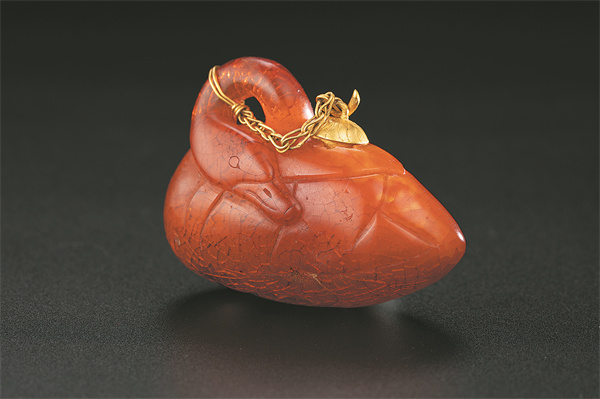

"The princess and her consort were dressed and equipped to mount their steeds and ride off across the steppes of their fiefdom," writes Linda Cooke Johnson, a professor of history at Michigan State University in the United States, in her book on gender and identity of women from Liao and Jin, two Chinese dynasties founded by nomadic people. Here, Johnson discusses the final resting place for a princess — known as the Princess of the State of Chen — of China's Liao Dynasty (916-1125) and how she was interred with her husband by her side and with almost everything needed for a pastoral life.
These included gilt silver boots worn by the couple that resembled"modern Western riding boots" to quote Johnson, as well as various horse gear — gilt copper chest traps, bridles and stirrups for example. There's even a copper burning mirror for starting a fire and a jade arm shield on which a hunting eagle could alight every time it returned to its master.
Such a life is within the imagination of those who visit Suzhou Museum where an exhibition focusing on the life of the Khitan women of the Liao Dynasty is on view.
"The Liao people lived on horseback. Even empresses and royal concubines were accomplished archers and riders who followed their husbands in military campaigns as well as leisure hunting trips," says the exhibition's curator Xu Xincheng, quoting Liaoshi, or The Annals of Liao, compiled during the mid-14th century.
According to an epitaph of a certain Concubine Xiao from Liao that has survived to date, the lady always"withheld her shot until she was certain of hitting her prey".
That depiction could have served as an apt metaphor for Shulyu Ping, wife of Liao's founder Yelyu Abaoji. Playing an indispensable role in her husband's highly controversial ascendance to power, she almost never failed to deliver fatal blows to her foes, on and off the battleground.
Her remarkable military skills and political maneuvering were passed on to the future imperial wives of Liao, most notably her own great-granddaughter Xiao Chuo, who was in turn the paternal grandmother of the Princess of the State of Chen. Wife to the fifth emperor of Liao, Xiao Chuo acted as the powerful regent for her teenage emperor son upon the death of her husband and effectively presided over the Liao court for 27 years until her own passing in 1009.